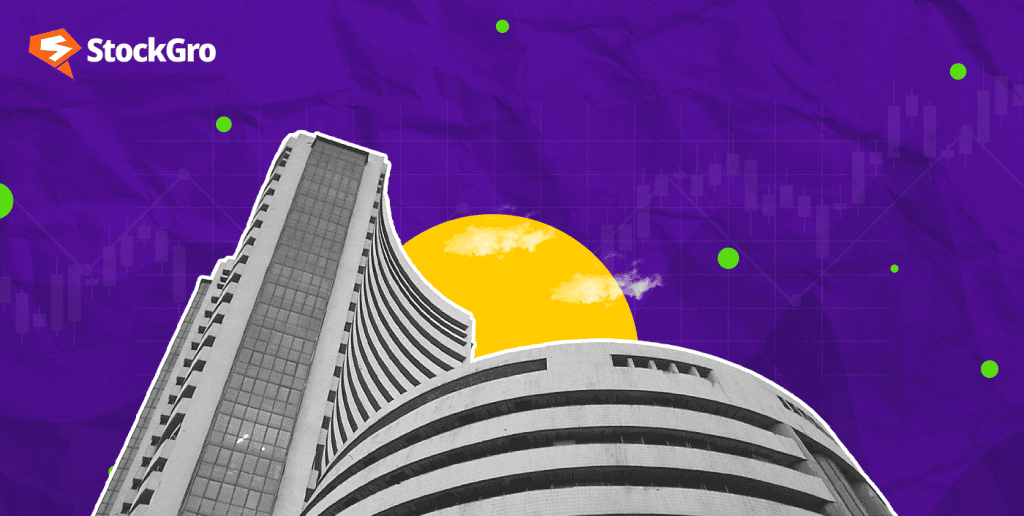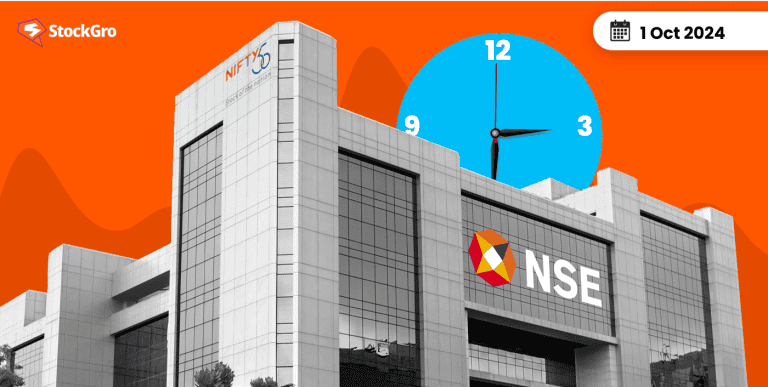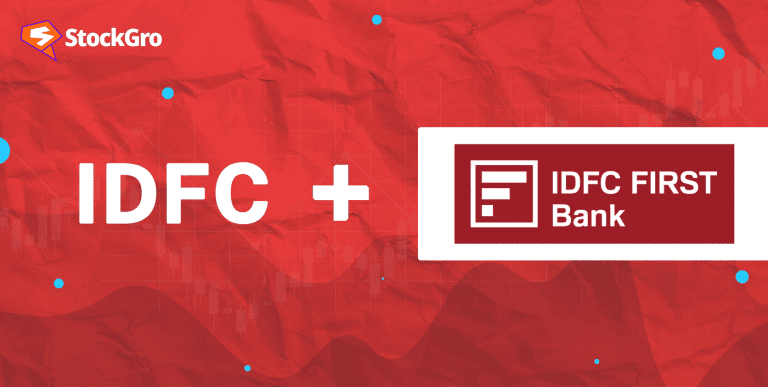
What do these stock market changes mean for your trading strategy?
As of October 1, 2024, several financial changes have been implemented, affecting Indian stock market investors. One of the key adjustments is the increase in Securities Transaction Tax (STT), along with revised transaction fees on the Bombay Stock Exchange (BSE) and National Stock Exchange (NSE).
There are also changes in the taxation of share buybacks. This blog will break down what these updates mean for your investments and trading strategies.
Key changes for stock market investors from October 1, 2024
Indian stock market investors have three major changes to take note of from October 1, 2024, which may affect their trading strategy and profits:
- Revised transaction fees on the BSE and NSE
- Increased Securities Transaction Tax (STT) on derivatives trading
- Changes to the taxation of share buybacks
These adjustments were implemented in response to regulatory shifts, including a mandate from the Securities and Exchange Board of India (SEBI) that calls for a standardized fee structure.
Also Read: Best Stock Market Forums and Communities for Investors
Revised transaction fees on BSE and NSE
As of October 1, both the NSE and BSE have introduced new transaction fees across different segments.
New NSE Transaction Fees:
- Cash Market: ₹2.97 per lakh of traded value
- Equity Futures: ₹1.73 per lakh of traded value
- Equity Options: ₹35.03 per lakh of premium value
New BSE Transaction Fees:
- Sensex and Bankex options contracts: ₹3,250 per crore of premium turnover
- Sensex 50 options and stock options: ₹500 per crore of premium turnover
- No fees for index and stock futures
These fee changes aim to standardize the transaction costs for traders, as mandated by SEBI. It is essential to take these into account when planning your trading strategies, as they directly impact the cost of transactions on the BSE and NSE.
Increase in Securities Transaction Tax (STT)
The Securities Transaction Tax (STT), which applies to derivatives trading, has been increased. The changes are designed to curb the rising retail participation in derivatives markets.
New STT Tax Rates:
- Futures Trading: Increased from 0.0125% to 0.02%
- Options Trading: Increased from 0.0625% to 0.1%
The rise in STT rates will increase the cost of derivatives trading, potentially impacting the trading volume and depth in the market. While this could slow down the activity in the Futures and Options (F&O) segment, seasoned traders should carefully evaluate their strategies to adjust for this increased cost.
| Type of Trade | Old STT Rate | New STT Rate (from October 1) |
| Futures Trading | 0.01% | 0.02% |
| Options Trading | 0.06% | 0.10% |
As STT tax is levied on every transaction, understanding its impact on your portfolio is crucial, particularly if you are engaged in high-volume trading. Retail investors may experience a higher tax burden as a result.
You may also like: Security Transaction Tax: When and Why is STT Levied?
Changes in share buyback taxation
Another significant financial update that will affect stock market investors is the new taxation rules for share buybacks. Previously, companies that repurchased their shares from investors enjoyed a tax-efficient way of returning cash to shareholders.
Starting from October 1, 2024, income from share buybacks will be taxed similarly to dividends, meaning the tax will be levied at the hands of shareholders instead of companies.
Key points:
- Shareholders will now be taxed based on their income tax slab rates.
- This taxation shift might encourage companies to explore alternative methods of distributing profits to shareholders, such as dividends or reinvestments.
For investors, this means that any income from share buybacks will no longer be tax-free and could result in a higher tax liability depending on your income bracket.
What does this mean for investors?
The hike in STT tax and changes in transaction fees might discourage high-frequency trading and could impact market liquidity. Investors should consider adjusting their trading strategies to account for the increased costs, particularly in the derivatives market.
With the new buyback tax rules, shareholders may need to evaluate whether buybacks remain a tax-efficient option or if dividend income would be more favorable.
Also Read: Equity investments: Unraveling the mystery of short-term capital gains tax
Key takeaways for traders:
- Factor in the increased STT while calculating your net returns, especially if you frequently trade in derivatives.
- Review transaction fees on NSE and BSE, as these will now directly impact your trading costs.
- Prepare for changes in tax treatment on share buybacks and explore alternative investment opportunities.
By understanding these financial changes, you can optimize your strategies and stay ahead of the game.

